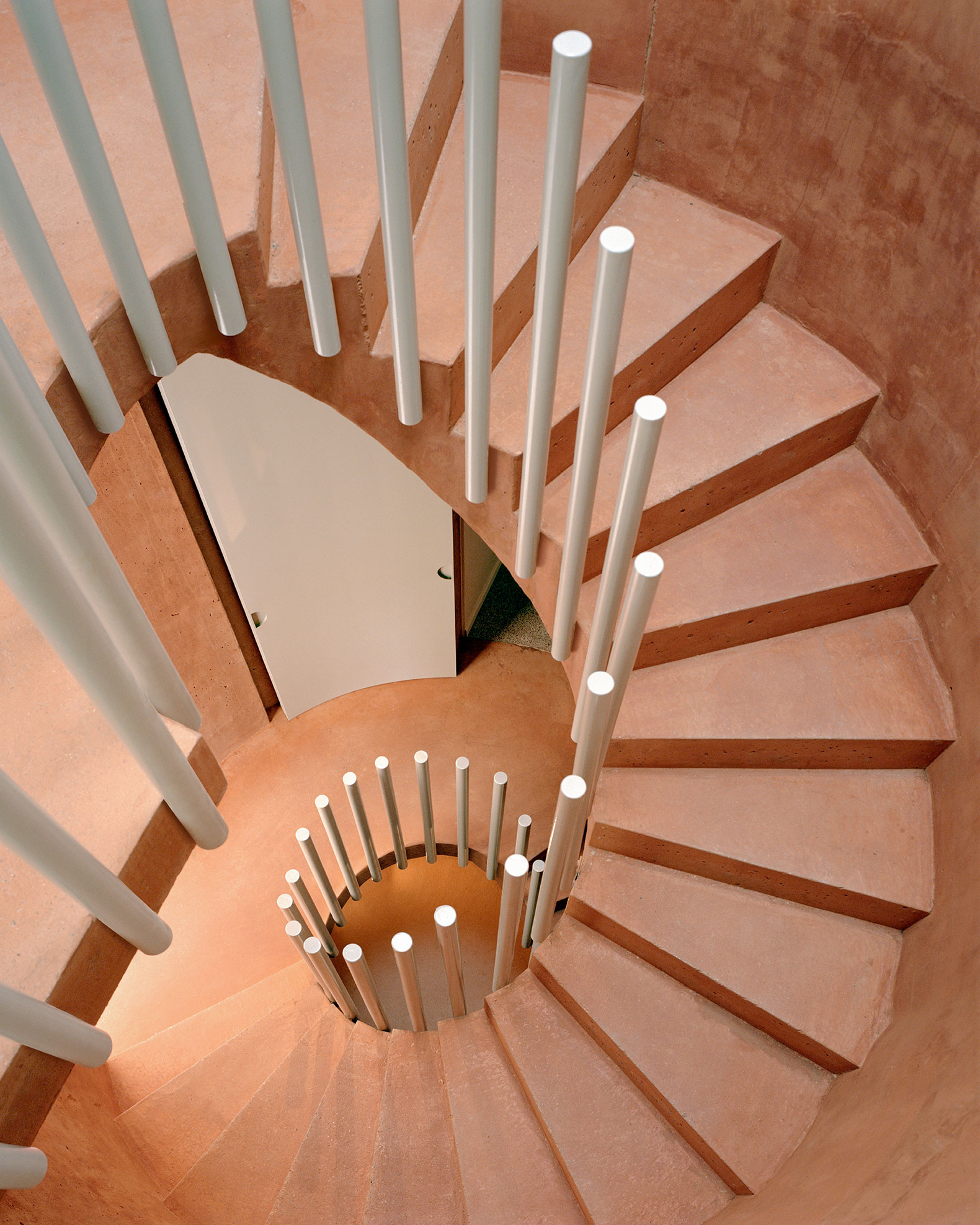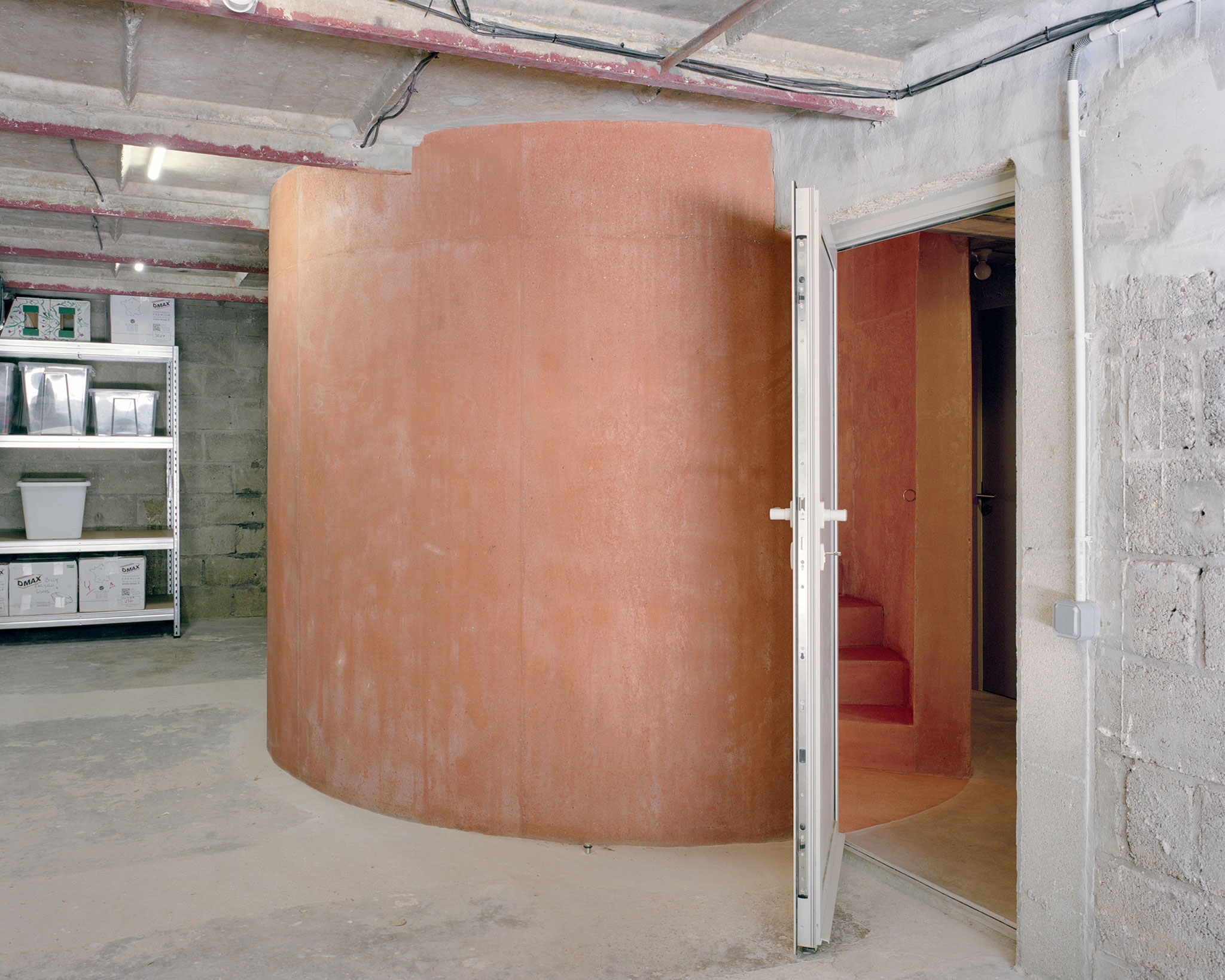The intention of the project is to be a material extension of the existing stelae, a contemporary and responsible nod to what already exists. The architects visited the DeWulf brick factory, where they found a huge pile of waste called "chamotte" (unsold, deformed, or overcooked bricks that are then crushed within the industrial site) and decided to design the work based on this material.
On the outside, we sought to gradually guide the visitor towards the different entrance spaces, through the implementation of a set of walks, seats, and the new large terrace, a direct extension of the main living room.

Materials wells by Atelier Delalande Tabourin. Photograph by Maxime Delvaux.
Project description by Atelier Delalande Tabourin
An exemplary rehabilitation in Versailles
The building to be rehabilitated is located in the heart of a residential area from the 1950s in the city of Versailles. It is made up of three floors clad on the facade by six imposing brick steles which, thanks to their verticality and their contrast in materiality, lighten the massive and cubic appearance of the building.
The first sequence worked on by the architects was that of arrival at the house. By creating a stroll in the garden animated by a play of walking, seats, and terraces, they sought to gradually guide the visitor towards the different entrance spaces. The last step is the new large terrace, a direct extension of the main living room.

Materials wells by Atelier Delalande Tabourin. Photograph by Maxime Delvaux.
The diagnosis
Then, upon discovering the interior spaces of the existing building, the atmosphere was dark with a distribution of spaces that was difficult to read, isolating the large unused basement and disconnecting the living spaces from the generous peripheral garden. In order to respond to this spatial diagnosis, ADT imagined four architectural interventions, and four large skylights that perforate the existing floors in order to dazzle all the levels with material.
The presence of these four architectural interventions facing the sober and minimalist interior of the rest of the house makes them reference points around which the spaces are structured.

Materials wells by Atelier Delalande Tabourin. Photograph by Maxime Delvaux.
A research project on matter
Worked using co-products from Ile-de-France brickworks, these interventions are intended as a material extension of existing steles, like a contemporary and responsible nod to what is already there. This “chamotte concrete” materiality is the result of a long research process initiated in the “resource diagnosis” phase with Anna Saint-Pierre, designer and researcher in reuse, and collaborator on this project.
When visiting the DeWulf brickworks, we were quickly struck by a huge pile of waste called “chamotte”. This co-product corresponds to all the unsold, malformed, or overcooked bricks which are then crushed within the industrial site. From then on, it seemed obvious that we had to use this deposit as a material basis for our project.
A long series of tests and prototypes followed in collaboration with the companies Cemex and Sols, particularly for the choice of grain size for interior and exterior floors. Indeed, in parallel with our vertical wells, we wanted to play on the density of chamotte in the soil in order to subtly indicate to users the different spatial sequences.

Materials wells by Atelier Delalande Tabourin. Photograph by Maxime Delvaux.
Preserve the history of the place
With this same waste material, ADT wanted to reveal the old interior organization of the building by, for example, highlighting traces of the old partitions in the rooms, or by reusing the existing travertine floors in the living room into decorative elements: masonry bench above. A contemporary and committed rehabilitation that, thanks to the sensory qualities of materiality, brings a spatial and emotional experience to the place while respecting its history and local know-how.











































